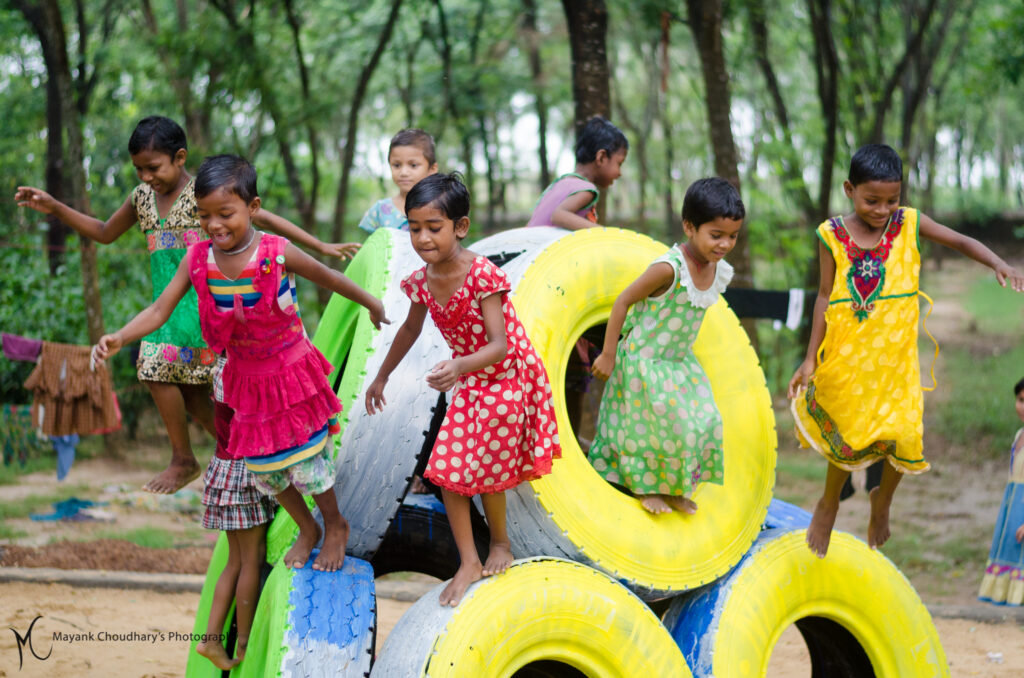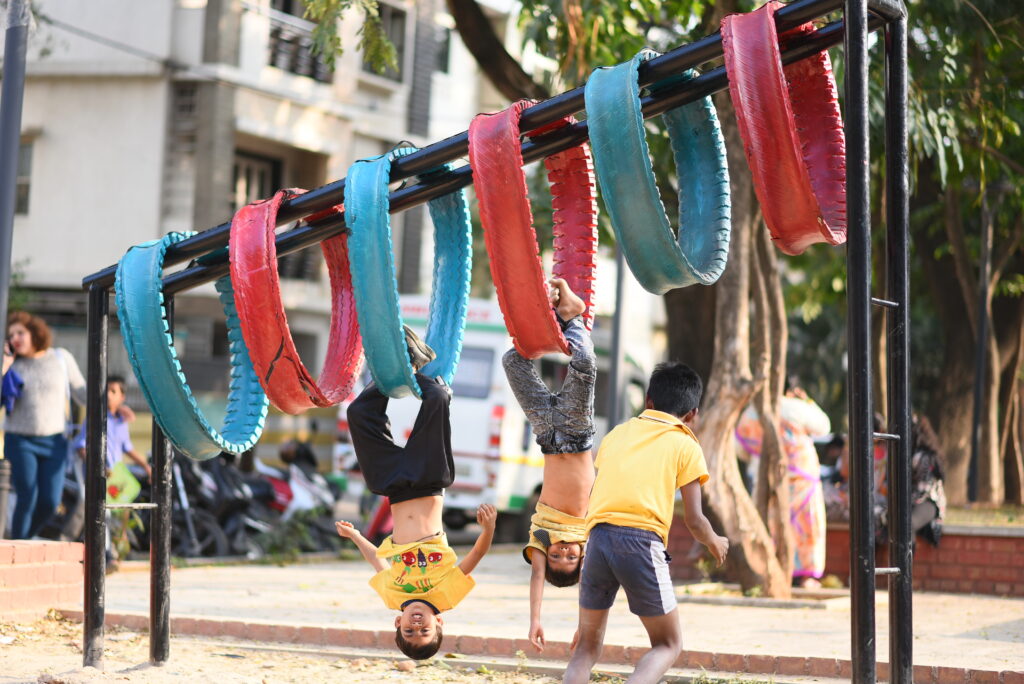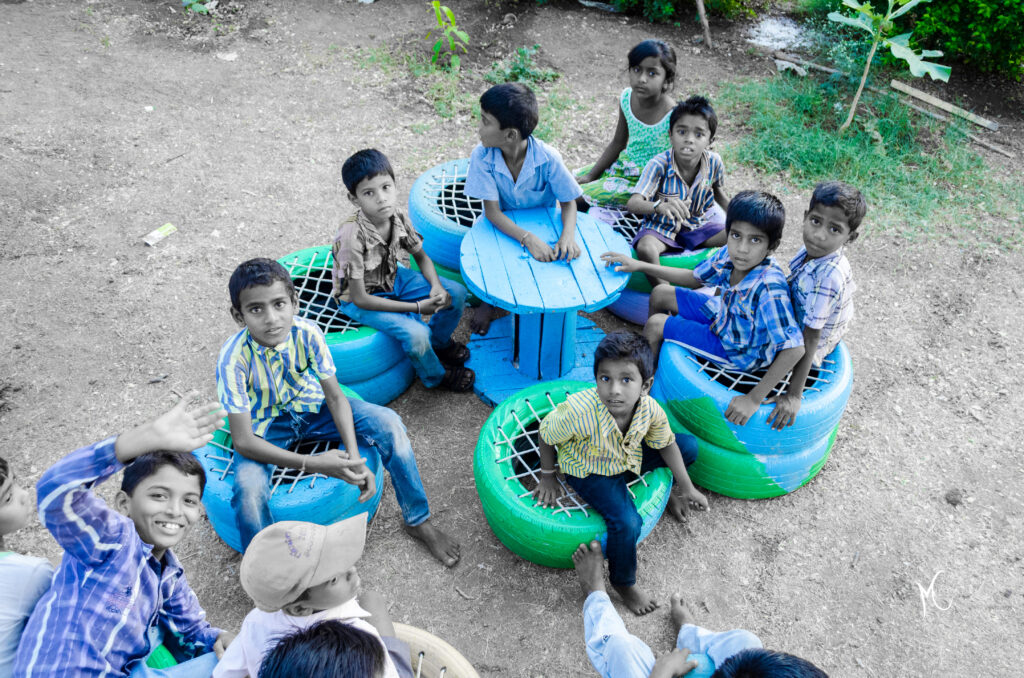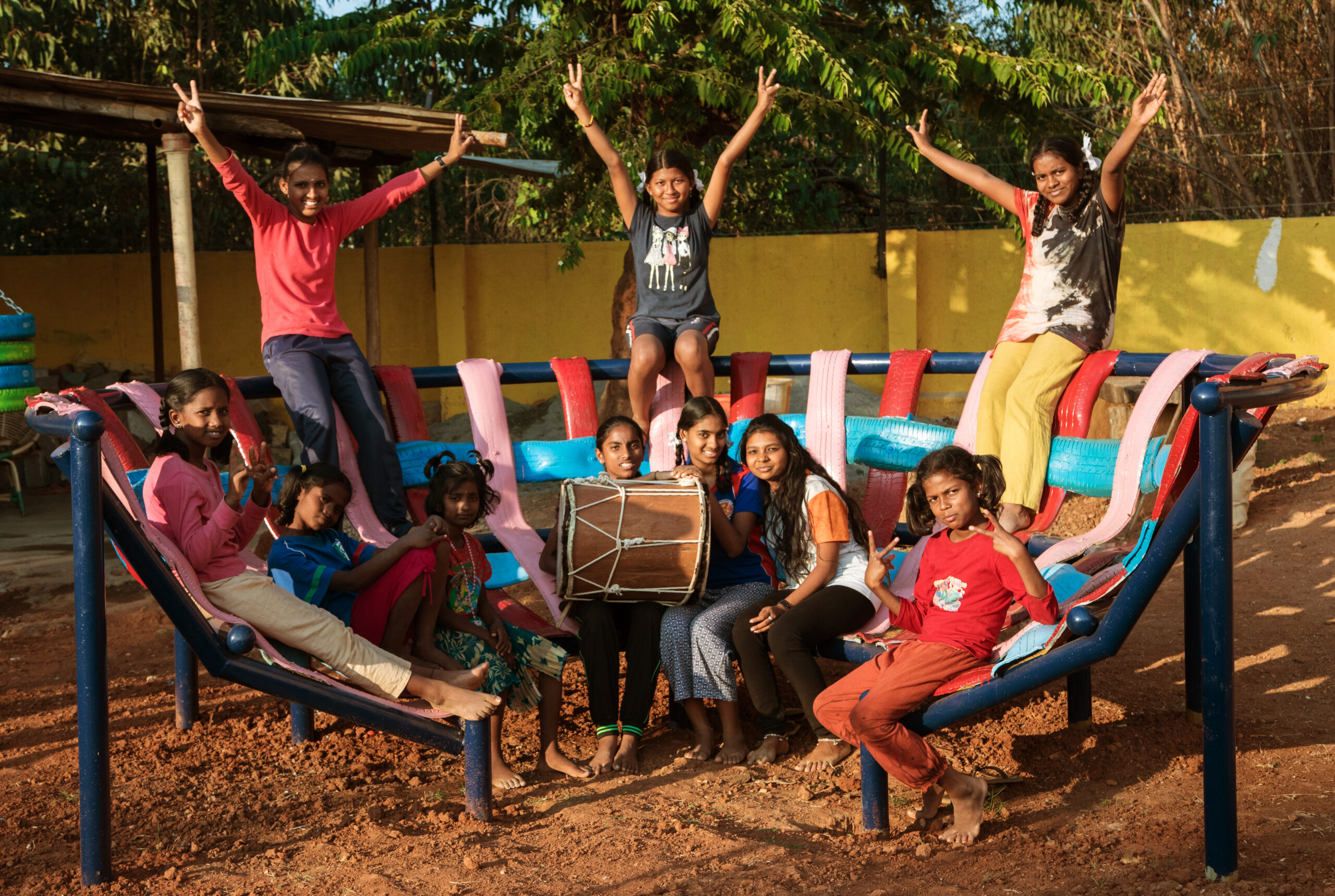Most of us have spent ample time in nature as kids while exploring rocks, climbing trees etc. but these days kids are more engaged in “swiping left and right on their phone”. This inclination towards gadgets has sucked the entire essence of childhood. When we play outdoors with friends, family or meet new people, little do we know these activities build our brain, body and character for our entire life.
To make playing- a joyful and learning experience for all. Anthill Creations has set a benchmark with its artistic yet eco-friendly play scrap areas. According to Pooja Rai, the founder of Anthill Creations, “Children need the freedom and time to play. One needs to understand that play is not a luxury but a necessity and it has to be a part of an individual’s life”.
She shared a plethora of information regarding how to make sustainable and eco-friendly playgrounds by upcycling waste and how we can convert scrap into useful material and other aspects related to playing. She further said, “playing is just not related to going out or to performing some activity; outdoor playing fosters an individual’s intellectual, emotional, social, and physical development. It stems from the education system which leads to the development of an inquisitive mind”.

Rai said, “In earlier times when phones were wired, people were free, but the scenario has reversed now: phones are wireless and people are glued to them. Somewhere in between the race of technology and nature, people have been inconsiderate towards nature and to bring to light the importance of nature in any individual’s life.”
“FUTURE IS OUTDOOR,” she says, emphasising the importance of playing. This phrase is multilayered- along with innumerable health and environmental benefits, children who play outside, create a shared experience and form a bond with nature. “The children are future stewards of the earth”. According to psychologists, childhood is the best age to raise adults who are sensitive and passionate about protecting the environment and preserving it. Many parents ideally want their children to excel academically, but they fail to recognise that children learn through playing. While playing, children learn a lot of things.
“The creation of something new is accomplished not by the intellect but by the play instinct,” Carl Jung once said. Nature creates a unique sense of wonder for kids that no other environment can provide. Several studies have found that exposure to nature can reduce symptoms of ADHD and anxiety in people of all age groups, as well as “children who play with their families develop to be more empathetic and responsible adults”. The phenomenon that occurs naturally in backyards and parks every day makes kids question the earth and the life that it supports.
Visionaries like Ms Rai, who has been a star, have contributed towards the environment and society with a mission of “providing access to play and making play an integral part of our lifestyles”.

With Anthill, they have built around 300 DIY playgrounds in over 18 states in India and internationally in Peru, Nepal and the USA. They have brought happiness to over 200000 children through their play kits and play scraps.
She said, “Children are harbingers of tomorrow and “one needs to show them and sensitise them towards the environment and nature by making them aware of what alternatives can save and protect our environment. They should be taught and shown what recycling, upcycling, reusing is. Since waste is only waste if we waste it”.
According to statistics, around 90% of kids studying in government, schools don’t have access to a healthy playing environment, but with the concept of play scrap, Anthill Creations are curating low cost, effective play areas for all.
“These playscraps comprise used tyres, oil cans and other waste materials that can be recycled, upcycled and reused by keeping in mind the quality of the product and the safety of children as the prime concerns. To make these playgrounds, around 70-80 tyres are used. Every year approx. 981 million tyres are thrown away which leads to grave environmental issues and the burning of these rubber tyres is one of the biggest pollutants causing the emission of a tremendous amount of CO2 which leads to ozone layer depletion,” added Rai
Waste in its worthless state is the primary fuel for creativity and Anthill Creations proves it right. Ms Rai shared an experience from her college days, where they were taught to take up inspiration from nature and build architectural structures. This is known as “BIO-MIMICRY”.

On being asked about the significance of the name Anthill, she said, “Just like many ants work together to build a large and strong structure. Similarly, many small initiatives and joint efforts towards the goals lead to a revolutionary success”. Like ants who toil hard and face a lot of challenges while building their anthills, so do humans- the biggest challenge that this NGO faced was to find “safe waste material”. Proper durability and a quality check are done through engineered processing while keeping in mind the safety of children.”
A professional core team of design engineers trained local people to build these eco-friendly playgrounds. This not only leads to sustainable ecological development but also empowers many people who actively take part in the drive to save the environment. Rai added, “By recycling, you can change tomorrow. Today! ” By looking at the current situation and with the ongoing pandemic, people have realised the importance and worth of nature.” Robert Swan quoted, “the greatest threat to our planet is the belief that someone else will save it”.

Rai concluded by saying, “The changes you want to bring need not be enormous. Anything and everything that you do daily, be it as small as carrying your own shopping bags or reusing your own things, can make a lot of difference as this has a ripple effect on it. So, one should start with minor changes which lead to greater achievements in sustaining the environment. With the first step being to generate as little waste as possible”.
We need to change the ways and approaches of our life to support the planet and not pollute it by going eco-friendly. As Albert Einstein once said, “we can’t solve our problems with the same thinking we used when we created them”. It is our responsibility to keep the planet intact and a liveable place for future.
Written By: Jeet Sandhu

